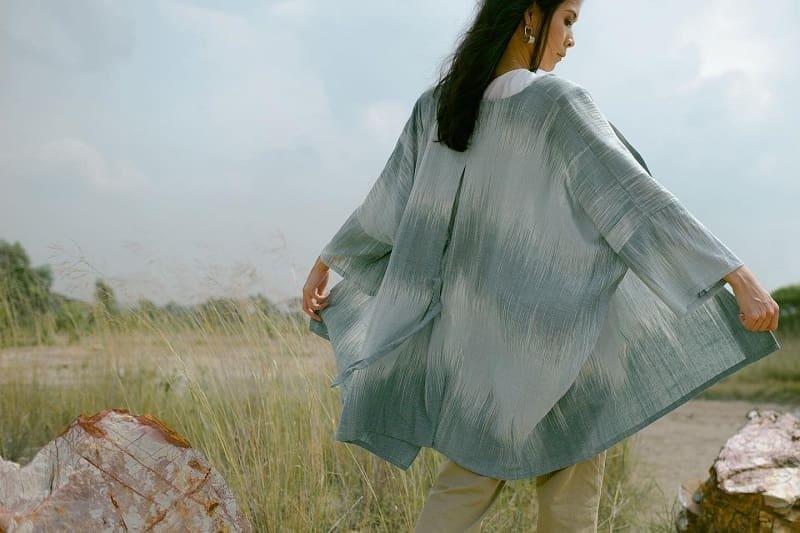The apparel industry is known for creating insurmountable waste and engaging in unethical activities like incineration of unsold products and underpaid staff. Although fast fashion companies continue to promote their money-making strategy, which is heavily polluting the world or making unfounded, environmentally friendly statements, it is refreshing to see smaller businesses dedicated to keeping our planet safe. Yeap Xe Linn’s zero-waste clothing company Little is the perfect example.
Yeap, who was studying fashion design at Middlesex University London, says she was shocked at the amount of discarded fabric left behind after making clothing. “When I was dressmaking and even while at university, there were tonnes and tonnes of textile waste … I just hated looking at them because I knew so much money has been spent on these fabrics. Most of the fabrics dumped were beautiful and I didn’t think they should be wasted like that,” she says.
A classmate showed her a whole new perspective. “I didn’t know about zero-waste cutting. People have reinvented the dressmaking patterns but there isn’t a rule to it; you just have to make your own rules and measurements. I learnt about this from a friend of mine in class. She did her whole project on zero-waste cutting, and I thought that it was just so amazing,” she explains.
After university, Yeap worked as an assistant designer before decidingto start her own business. Textile waste was not the sole reason for this. “When assisting other people, your voice isn’t heard. And then, in a way, you’re constantly trying to please other people. I felt like nothing I did was good enough,” she adds.
Yeap quit her job in 2017 and utilised the year developing new zero-waste patterns. “You know those montages of people solving crimes? [Drawing zero-waste patterns is] nothing like that. It’s so boring. You just sit down and look at photos, draw out the idea of the top or dress you want and then figure out the calculations and proportions.” She spent a lot of her time working out the math and creating possibilities through trial and error.
Finally, in April 2018, Little — yeap ‘s university nickname and a reflection of the brand’s lack of waste — was launched as a clothing line for children with zero-waste. Yet, it was a dud in her own words. She visited bazaars and was selling online but there were few buyers. Yeap uses high-end fabrics, and focuses on paying fairly to her seamstresses, so she is charging higher rates.
“Customers told me ‘if you made this in adult sizes, I would buy it’, so I tried it,” she says. Little’s first capsule collection for adults was released in 2019, and the response was far more favourable. The brand still stayed true to its morals and ethics. “The pieces were very limited and they were made to order. I don’t want to cut the fabric if no one’s going to buy [the clothes] because I can use [the fabric] for something else. I don’t want it to be wasted or have stock just sitting there,” Yeap explains.
For every fashion retailer, going zero-waste is also an impressive achievement. Little’s designs are built to match seamlessly together like bits of a jigsaw puzzle, leaving behind no scraps of cloth. Yeap has had to devise a brand new method of cutting on each production to ensure the whole material is used. “I feel like the biggest challenge is to make something look like it was effortlessly made and is recognisable. This is because if all the measurements of the pattern are off, then, obviously, the shape is off,” she says.
However, Covid-19 and the Movement Control Order caused several companies to shut store, including Real.m. Even, Little has continued to adjust and help those in need. Early on, Yeap produced face masks with Kelantanese batik, when they were scarce in the market. She arranged a giveaway, and free masks were offered to those who matched her requirements — families with children , the elderly or frontline staff.
She is working on an exciting new collaborative collection that she hopes to release by early November. “I can tell you that it’s going to be women’s wear, it’s going to be really fun, and definitely zero-waste and eco-friendly.”
SOURCE: The Edge Malayasia

